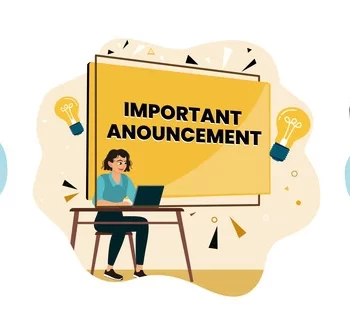IT operations have become the backbone of virtually every organization, from startups to multinational corporations. As businesses increasingly rely on IT to drive growth, streamline operations, and foster innovation, the emphasis on effective IT service management (ITSM) has skyrocketed. Enter the ITSM consultant. These specialists serve as the bridge between complex IT processes and business objectives, ensuring that technology genuinely serves the organization’s goals.
In this blog, we will dive deep into the world of ITSM consulting, its workings, and invaluable tips for those in the profession. Whether you’re an enterprise looking to optimize your IT services or an aspiring consultant, this piece sheds light on the integral role of ITSM consultants in the contemporary business landscape.
Related article: Integrated ITSM workflows: The backbone of efficient service management
Who is an ITSM Consultant?
An IT Service Management consultant is more than just a technical specialist. They’re the strategic architects in the domain of IT service management, balancing the realms of technology and business strategy.

These consultants are steeped in knowledge about the best practices, methodologies, and tools related to ITSM. For example, an organization might be struggling with incident management, experiencing prolonged downtimes affecting their business continuity. An ITSM consultant could step in, employing best practices from frameworks like ITIL to streamline incident response, drastically reducing the recovery time and thereby minimizing business disruptions.
Their proficiency isn’t just about theoretical know-how. Consider a scenario where a retail company wants to migrate its on-premises applications to a cloud environment. While their internal IT team might focus on the technical aspects, an ITSM consultant would ensure that this migration aligns with the company’s growth strategy, mitigates risks, provides contingencies for data protection, and ensures minimal service disruption during the transition.
Another prime example is the integration of a new IT tool into a company’s workflow. The tool promises efficiency but requires substantial changes in how teams operate. An ITSM consultant wouldn’t just oversee the tool’s integration but would also orchestrate the change management process, ensuring teams are trained, resistance is managed, and the transition happens smoothly, with end-users reaping the tool’s benefits without hiccups.
In essence, the role of an ITSM consultant extends beyond mere technical oversight. They ensure that as organizations make strides in their IT journeys, the steps taken holistically align with business objectives, cater to end-user needs, and stay resilient and adaptable in a fluctuating technological environment.
What Does an ITSM Consultant Do?
An ITSM consultant brings a blend of technical knowledge, process understanding, and practical experience to the table. Their responsibilities include:
Assessment: A crucial first step is to fully grasp the present status of an organization’s IT setup. This involves meticulous scrutiny of the current IT infrastructure, services, and processes. Imagine a large corporation with fragmented IT services leading to inefficiencies. An ITSM consultant would dissect each segment, pinpointing bottlenecks, redundancies, or areas that lack cohesion, ultimately crafting a holistic picture of where improvements are needed.

Recommendation: Post assessment, the consultant leverages their expertise to design a bespoke roadmap for the organization. For instance, they might detect that an outdated service ticketing system is slowing down response times and recommend a state-of-the-art system that not only enhances speed but offers better analytics, improving overall service quality.
Training: Recognizing that the best tools are only as good as the people wielding them, ITSM consultants take charge of upskilling the organization’s IT personnel. Through comprehensive ITSM training modules, they ensure that staff is well-versed in the latest methodologies, software, and best practices, translating to more efficient and effective service management.
Implementation: Transition periods can be tumultuous. When introducing new ITSM tools or refining processes, challenges abound. Whether it’s ensuring data integrity during migrations, optimizing workflows, or guaranteeing minimal disruption to daily operations, the consultant oversees this intricate phase, making the journey from old to new a seamless one.
Support: The IT landscape isn’t static. As technologies evolve, businesses expand, and user needs shift, maintaining IT service efficiency is an ongoing endeavor. An ITSM consultant doesn’t just walk away post-implementation. Instead, they offer continuous support, ensuring that implemented solutions remain relevant, efficient, and in sync with an organization’s shifting objectives. This might entail periodic reviews, introducing updates, or even retraining staff as new features roll out.
Types of ITSM Consultants
- Service strategy consultants: These consultants assist organizations in defining their IT service strategy. They evaluate current IT capabilities, business goals, and market demands to develop a strategic approach that aligns IT services with business objectives.
- Service design consultants: Specializing in the design phase of the IT service lifecycle, these professionals focus on creating new IT services or redesigning existing ones. They ensure that services are designed to meet current and anticipated business needs.
- Service transition consultants: Their expertise lies in transitioning new or modified IT services into live environments. This involves risk management, change management, and ensuring that new services don’t disrupt existing operations.
- Service operation consultants: These consultants ensure that IT services are delivered once they’re live. They focus on areas like event management, incident management, and request fulfillment to maintain service quality and reliability.
- Continual Service Improvement (CSI) consultants: The world of IT is dynamic, and IT services need to evolve accordingly. CSI consultants work on identifying and implementing improvements in IT services, ensuring they continually meet business needs.
- ITIL consultants: Given that ITIL (Information Technology Infrastructure Library) is a widely adopted framework in ITSM, some consultants specialize in its methodologies. They assist in ITIL implementation, training, and ensuring adherence to its best practices.
- Technology consultants: ITSM is often supported by specific tools and platforms (like ServiceNow or BMC Remedy). These consultants offer expertise in selecting, implementing, and optimizing these tools to support ITSM processes effectively.
- Process consultants: They focus on specific ITSM processes like change management, problem management, or configuration management. Their role is to optimize these processes, ensuring they’re efficient and aligned with business goals.
- Compliance consultants: With IT becoming integral to business operations, adherence to regulatory standards and internal policies is crucial. These consultants ensure that ITSM processes comply with relevant regulations and industry standards.
- Training consultants: Implementing ITSM processes is one part of the puzzle; the other is ensuring that the IT team understands and can execute them. These consultants specialize in ITSM training, developing and delivering courses to upskill IT staff.
- Performance metrics consultants: They specialize in setting up metrics and KPIs to evaluate the performance of ITSM processes. Their role ensures that services meet defined standards and are optimized for performance.
How IT Service Management Consulting Works
When partnering with ITSM consulting services, clients are ushered into a collaborative and detailed journey. Here’s a comprehensive breakdown of what you can anticipate:
Initial Consultation
The starting point of engagement revolves around a deep dive into understanding the nuances of a given business model. By gaining insights into objectives, growth plans, and the existing state of the IT infrastructure, a solid foundation is established. This step is akin to laying down the blueprint, ensuring every subsequent action aligns with an organization’s DNA.
Gap Analysis
Armed with insights from the initial consultation, expert teams delve into the intricate task of identifying disparities. By closely inspecting current ITSM processes and infrastructure against industry best practices and stated objectives, areas of inefficiency, redundancy, or misalignment are highlighted, paving the way for targeted enhancements.
Strategizing

With a clear vision of existing gaps, the next phase involves charting out a roadmap for success. Drawing on deep ITSM expertise, a tailored ITSM strategy is crafted. Whether it’s choosing the right tools, optimizing workflows, or setting up feedback loops, every facet of the strategy is fine-tuned to dovetail with business aspirations.
Ongoing Training
Implementing new systems and processes requires an adept workforce to harness their potential fully. ITSM training modules are meticulously curated. They are not generic but are tailored, focusing on the specific tools and processes being integrated into the environment. Through hands-on sessions, interactive workshops, and real-world simulations, teams are empowered to transition confidently and competently.
Continuous Monitoring
The end of implementation is just the beginning of the journey. In a dynamic IT environment, complacency can be a pitfall. Service management consultant teams remain actively involved post-implementation. Through regular audits, performance analytics, and feedback mechanisms, the effectiveness of ITSM solutions is continuously gauged. If deviations or inefficiencies emerge, data-driven adjustments are swiftly made, ensuring the ITSM ecosystem remains agile and responsive to the ever-evolving business landscape.
Related blog: IT Event Management Software 2025
10 Tips for ITSM Consultants
The ITSM consulting landscape is vast, and as technologies and business requirements evolve, the role of an ITSM consultant becomes increasingly intricate. Thus, positioning oneself as a top-tier consultant demands more than just foundational knowledge of the ITSM space. It requires a commitment to personal growth, a keen understanding of business dynamics, and the ability to foster robust relationships with clients. Here are ten comprehensive tips, elaborated further, to guide your journey in ITSM consultancy:
Stay updated: ITSM, like many areas in technology, is continuously evolving. From emerging automation tools to shifting service delivery models, the pace of change can be staggering. Regularly review industry publications, attend webinars, and follow thought leaders to stay abreast of the latest trends, tools, and best practices.
Build soft skills: While technical acumen is your ticket into the ITSM consulting arena, soft skills elevate your consultancy prowess. This includes the art of listening actively, presenting ideas persuasively, managing conflicts, and cultivating empathy. It’s these skills that enable you to navigate complex organizational dynamics and build trust.
Offer tailored solutions: Recognize the inherent diversity in organizations. What works for a startup might not suit a multinational corporation. Engage deeply with clients to understand their unique challenges, organizational culture, and specific requirements before crafting bespoke ITSM solutions.

Prioritize security: With cyber threats becoming increasingly sophisticated, IT security is non-negotiable. Whenever suggesting process changes or introducing new tools, always conduct a rigorous security assessment. Ensure that the proposed solutions have robust security protocols and comply with industry regulations.
Emphasize user experience: Beyond the technical intricacies, remember that ITSM tools and processes are ultimately used by people. A solution might be technically sound, but if it’s cumbersome for end-users, it will face resistance. Focus on user-friendly interfaces, and intuitive workflows, and ensure adequate training is provided.
Engage in continuous learning: The ITSM domain is vast, encompassing service strategy, design, transition, operations, and continual service improvement. Regularly invest in ITSM training, certifications, and workshops. This not only hones your expertise but also showcases your commitment to potential clients.
Build a network: Networking isn’t just about expanding your client base. By connecting with fellow ITSM consultants, sharing experiences, and debating best practices, you enrich your own perspective. Forums, online communities, and conferences are excellent platforms for such engagements.
Understand business objectives: A seasoned ITSM consultant recognizes that ITSM isn’t an end but a means to support broader business objectives. Whether it’s increasing operational efficiency, improving customer satisfaction, or scaling services, always ensure your ITSM recommendations further these goals.
Seek feedback: The completion of a project shouldn’t be the end of your engagement. Reach out to clients for feedback on the implemented solutions, your approach, and any areas of improvement. This feedback loop can be a treasure trove of insights, helping you refine your consulting approach.
Maintain ethical standards: Trust is the bedrock of consulting. Maintain an unwavering commitment to ethical standards. This includes transparent communication, avoiding conflicts of interest, and always prioritizing the client’s best interests over any personal gains.
Related blog: Why ITSM needs the human touch in the age of AI
Conclusion
ITSM consulting is both challenging and rewarding. As technology landscapes shift and businesses grapple with ever-evolving demands, the role of the ITSM consultant becomes indispensable. By staying updated, focusing on continuous learning, and building meaningful relationships, consultants can truly make a difference. The above tips are not just guidelines but foundational principles for those looking to excel in this domain.
Embracing these will ensure that you not only deliver value to your clients but also elevate the entire ITSM community through best practices and innovation. As the adage goes, excellence is a journey, not a destination, and in the world of ITSM consulting, this journey is both transformative and fulfilling.



















